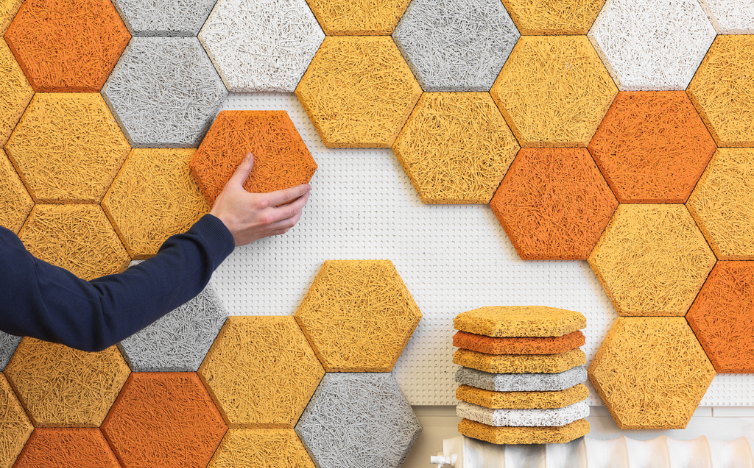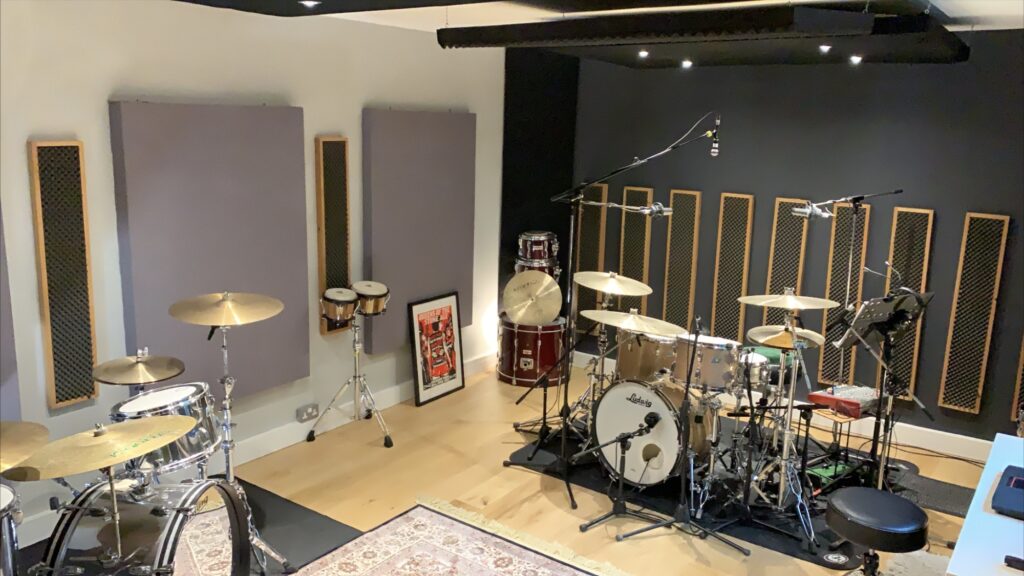As sustainability becomes a priority across industries, the acoustic solutions market is seeing a shift toward eco-friendly materials. Traditional acoustic panels, often made from synthetic fibers and non-renewable resources, are now being replaced by sustainable alternatives that combine effective noise control with environmental responsibility. This article explores the rise of eco-friendly acoustic panels and their benefits.
What Are Sustainable Acoustic Panels?
Sustainable acoustic panels are sound-absorbing materials crafted from eco-friendly, renewable, or recycled resources. Materials like recycled PET, bamboo, cork, and hemp are increasingly used to produce these panels. Unlike traditional options, these panels reduce carbon footprints while maintaining high acoustic performance, making them an ideal choice for modern spaces.
Benefits of Eco-Friendly Acoustic Panels

- Environmental Impact Reduction:
By using renewable or recycled materials, these panels help reduce waste and reliance on finite resources. - Improved Air Quality:
Many sustainable acoustic panels are free from volatile organic compounds (VOCs), promoting better indoor air quality. - Aesthetic Appeal:
Panels made from natural fibers like bamboo or cork add a touch of elegance and warmth to interiors. - Durability and Performance:
Despite being eco-friendly, these panels offer excellent durability and acoustic properties, comparable to or better than conventional materials.
Popular Eco-Friendly Materials for Acoustic Panels
- Recycled PET (Polyethylene Terephthalate):
Made from recycled plastic bottles, PET panels are lightweight, durable, and versatile. - Bamboo:
Known for its rapid growth and renewability, bamboo is a stylish and sustainable choice for acoustic treatments. - Cork:
Harvested from cork trees without harming them, this material is sustainable, biodegradable, and provides excellent sound absorption. - Hemp:
Hemp panels are gaining popularity for their low environmental impact and effective sound-dampening properties.
Applications of Sustainable Acoustic Panels
Eco-friendly acoustic panels are ideal for various spaces:
- Offices: Enhance productivity and reduce noise in open-plan workplaces.
- Schools: Create better learning environments with reduced echo and improved speech clarity.
- Theaters: Achieve superior sound quality while maintaining an eco-conscious design.
- Restaurants: Minimize noise for a more enjoyable dining experience.
- Homes: Use panels in living rooms or home offices to control sound and add aesthetic value.
Challenges and Future of Eco-Friendly Acoustic Panels
While the adoption of sustainable acoustic panels is growing, challenges like higher initial costs and limited availability can deter widespread use. However, with advancements in green technology and increasing awareness, the future of sustainable acoustic panels looks promising. More companies are investing in research to create cost-effective and versatile products, ensuring these panels become the standard in acoustic solutions.
Call us: Contact Waseem Technical Soundproofing Expert in Dubai For Soundproofing: +971 50 209 7517
Conclusion
Sustainable acoustic panels are more than just a trend—they represent a commitment to environmental stewardship without compromising functionality or design. By choosing eco-friendly materials, businesses and homeowners can contribute to a greener future while enjoying superior acoustic performance. Whether for commercial or residential spaces, these panels are a step toward harmonizing innovation with sustainability.




